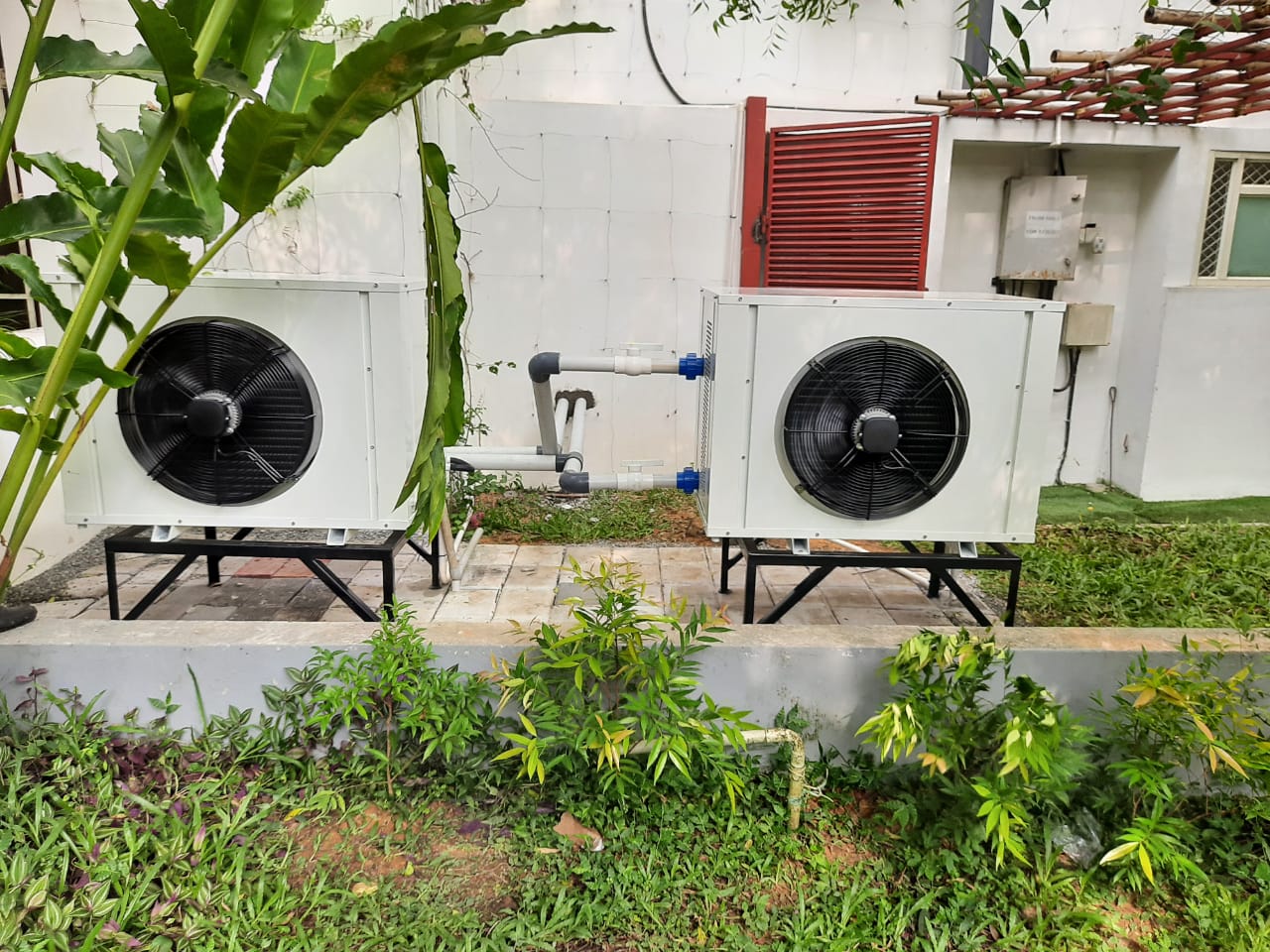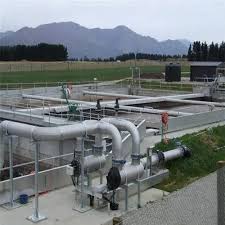A swimming pool heat pump is a device used to efficiently heat pool water by transferring heat from the surrounding air to the pool water. It operates on the principle of heat exchange, making it a cost-effective and environmentally friendly way to maintain a comfortable swimming temperature. How It Works: Air Intake: The heat pump draws in ambient air through a fan. Heat Absorption: The air passes over an evaporator coil containing a refrigerant. This refrigerant absorbs the heat from the air and turns into a gas. Compression: The warm gas is compressed by a compressor, increasing its temperature significantly. Heat Transfer: The hot gas passes through a heat exchanger where it transfers its heat to the pool water. Recycling: The refrigerant cools down, returns to liquid form, and the cycle repeats. Features: Energy Efficiency: Heat pumps use electricity to operate but rely on extracting heat from the air, making them more energy-efficient than traditional electric or gas heaters. Temperature Control: They typically come with thermostats for precise temperature adjustments. Durability: Designed to withstand outdoor conditions and prolonged use. Eco-Friendly: Lower carbon footprint compared to fossil fuel-based heaters. Advantages: Lower Operating Costs: Despite the initial investment, they save money in the long run due to lower energy consumption. Consistent Heating: They provide steady and reliable heating, especially in moderate climates. Longevity: Can last for 10–20 years with proper maintenance. Disadvantages: Dependent on Air Temperature: Their efficiency decreases in very cold weather since they rely on heat from the air. Slower Heating: It takes longer to heat the pool compared to gas heaters. Ideal Use: A swimming pool heat pump is best suited for regions with mild to warm climates where outdoor temperatures remain above 50°F (10°C). It's an excellent choice for residential and commercial pools, offering an economical way to extend the swimming season.
Send Message
